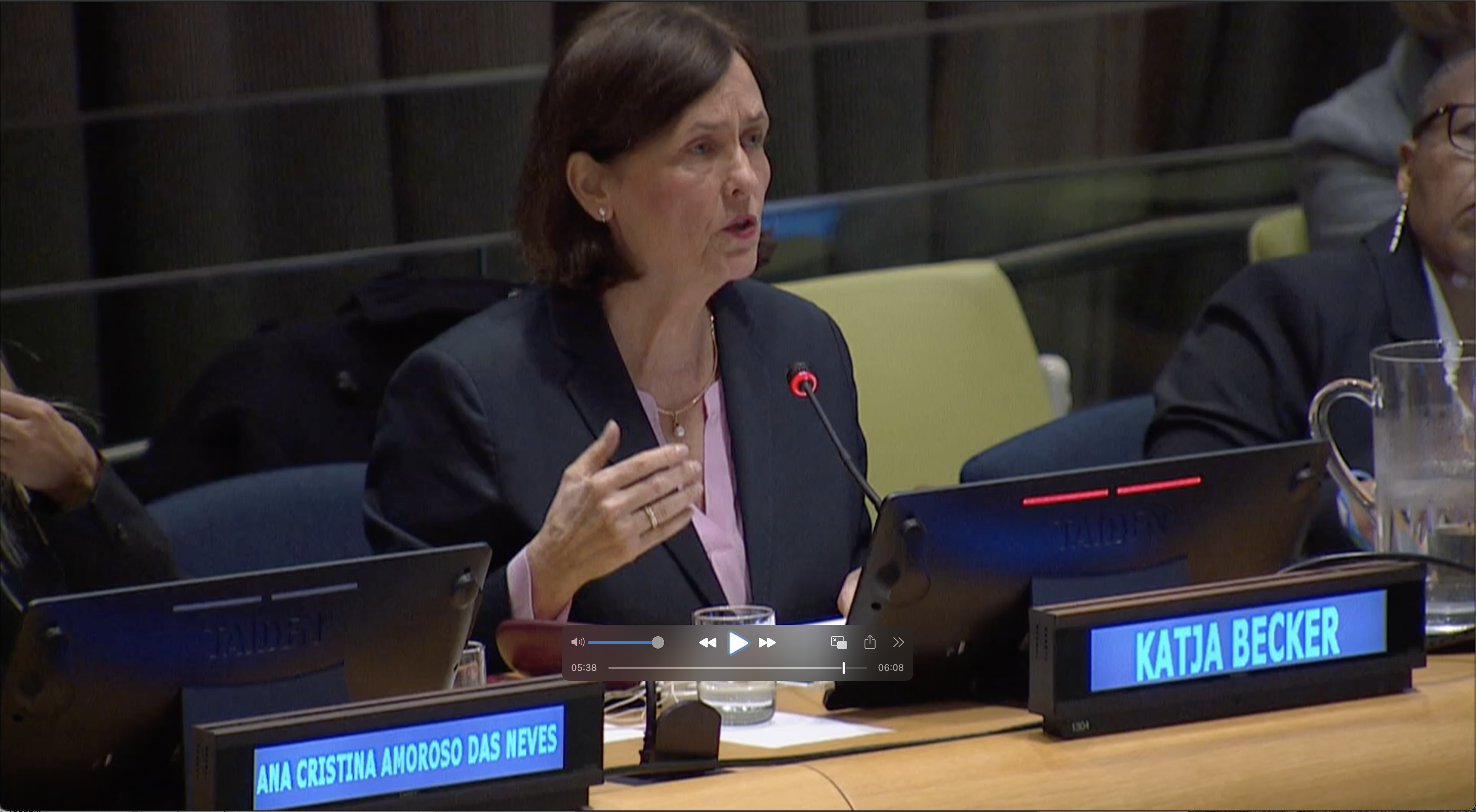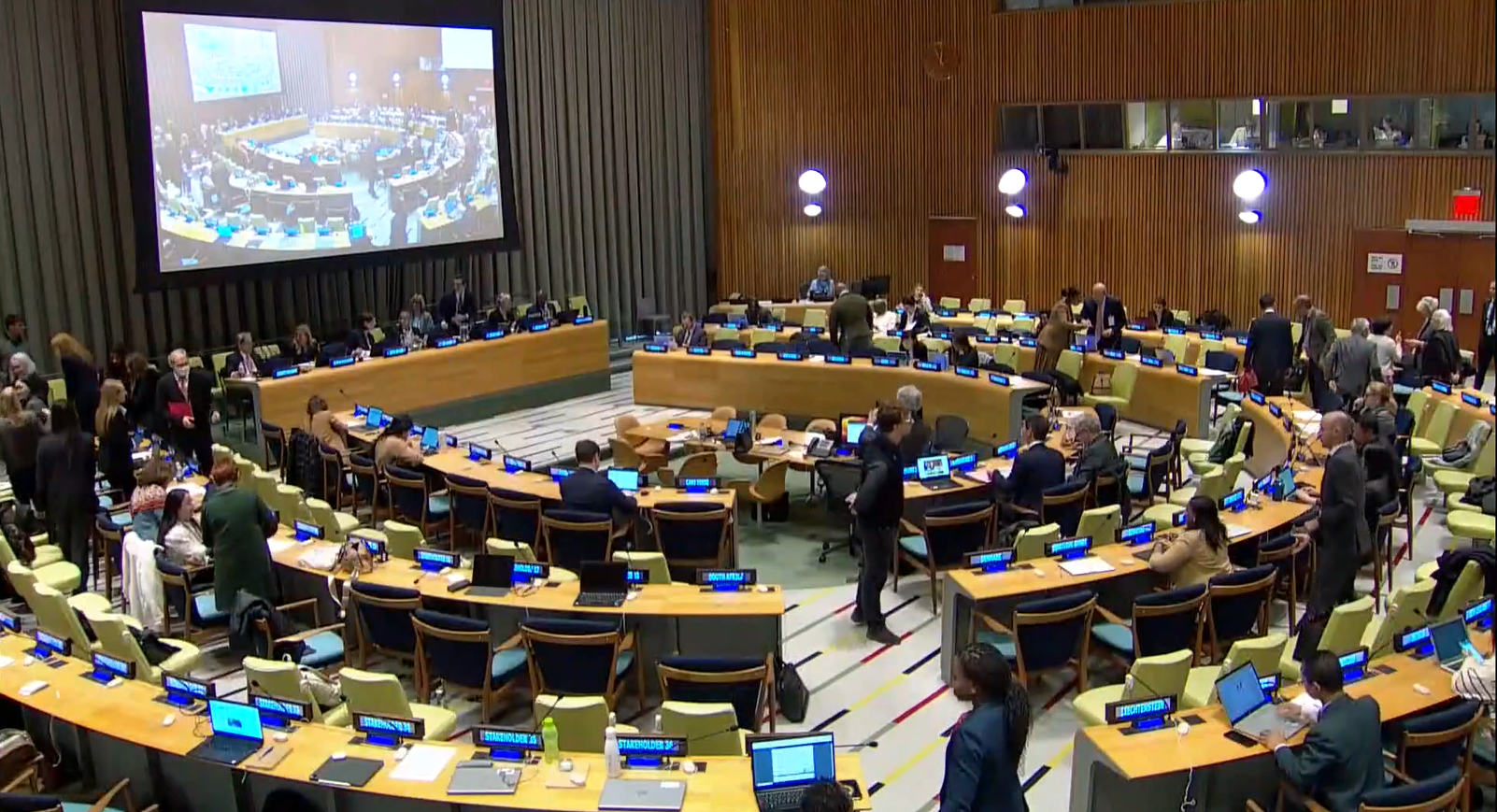DFG President at the United Nations: "Science is essential if we want to address global humanity questions"
Speech by Katja Becker on the significance of basic research in realising the UN Sustainable Development Goals / Two-day Multi-stakeholder Forum in New York

Prof Dr. Katja Becker at the auf dem "Multi-Stakeholder Forum on Science, Technology and Innovation for the Sustainable Development Goals"
The President of the Deutsche Forschungsgemeinschaft (DFG, German Research Foundation) and Chair of the Governing Board of the Global Research Council (GRC), Professor Dr. Katja Becker, used an extremely prominent location to stress the pivotal importance of science and research in relation to addressing global humanity questions and realising the UN Sustainable Development Goals. Becker spoke on Thursday 4 May in the UN’s New York headquarters at the "Multi-stakeholder Forum on Science, Technology and Innovation for the Sustainable Development Goals (STI for SDG)". She had been invited by the "Ten Member Group", an advisory body consisting of personalities from the fields of science, technology and innovation appointed by UN Secretary General António Guterres.
"If we want to reach the Sustainable Development Goals in a meaningful time, science has to play a more active role than before. One could even think of a more ambitious idea: defining and establishing an additional Sustainable Development Goal for science. A new SDG that puts global research cooperation at centre stage – not only but also because searching for the truth is a fundamental part of human nature. However, as long as such an additional SDG is not within our grasp, everything else needs to be done that contributes to integrating research and research findings into the SDG agenda. Because I’m convinced that science is essential if we want to address global humanity questions", said Becker before representatives of the United Nations and non-governmental organisations from around the world.
Becker, who as GRC Chair spoke on behalf of the informal organisation comprising around 130 research funding organisations worldwide, went on to emphasise: "In the current ‘polycrisis’, science empowers us with profound expertise, innovative tools and creative solutions to fight climate change and the loss of biological diversity, to eradicate poverty, reduce inequality, to promote justice – and to uncover the logic of global peace." Although only research that is truly free can make these contributions. "Unrestricted choice of research topics combined with free multilateral cooperation fosters fundamental research at the highest level."
Becker therefore suggested forming a partnership between the GRC as a global council of research funding organisations and the United Nations STI for SDG process. "This partnership has the potential to be powerful and efficient – because it will be based on the latest scientific findings and it can build on a strong and dedicated global community of researchers."
The DFG jointly with the GRC took the opportunity the day before to organise a side event to the STI for SDG Forum in the German House in New York. Becker together with the leaders of the DFG partner organisations from Brazil, Japan, Canada, South Africa and the USA, Germany's Deputy Permanent Representative to the UN, Ambassador Thomas Zahneisen, and Carlos Henrique de Brito Cruz, representing the "Ten Member Group", discussed how specific research could be generated in relation to the respective sustainability goals.
Further Information
Link to the website of the Multi-stakeholder Forum on Science, Technology and Innovation for the Sustainable Development Goals:
Link to the programme for the GRC and DFG side event "How to achieve more and better research for SDGs":
More on the 17 UN Sustainable Development Goals:
